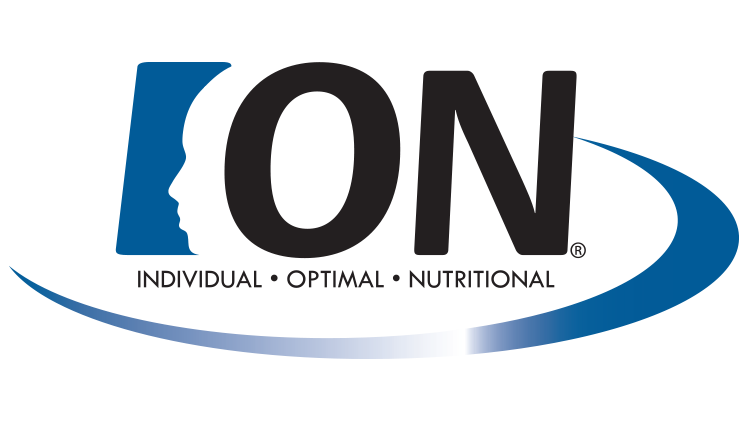Description
A Nutritional Analysis for Personalized Supplementation
Featuring an Expanded Amino Acid Panel
Why use the ION® Profile with 40 Amino Acids?
The ION® (Individual Optimal Nutrition) Profile with 40 Amino Acids nutritional analysis can help identify nutrient deficiencies that may be a root cause of complex chronic conditions. The ION with 40 Amino Acids is ideal for establishing a baseline assessment ahead of clinical intervention with nutraceuticals as well as subsequent monitoring as needed.
By evaluating 150 key biomarkers and ratios, the ION Profile with 40 Amino Acids evaluates organic acids, fat-soluble vitamins, Coenzyme Q10, homocysteine, oxidative stress markers, nutrient and toxic elements, fatty acids, and amino acids.
The ION Profile with 40 Amino Acids provides an expanded amino acid panel for enhanced clinical insight. Results can be used to personalize treatment plans to improve nutritional status, augment other treatments, and increase the resolution of complex chronic conditions.
Effective for Patients Experiencing:
Over time, functional nutritional inadequacies can contribute to a variety of chronic health conditions.
Clinical indications for testing include:
- Mood Disorders
- Depression
- Anxiety
- Fatigue
- Digestive Complaints
- Chronic Pain/Inflammatory Conditions
- Musculoskeletal
- Migraine
- Cardiovascular Risk
- Weight Issues/Dietary Guidance
- General Health and Sports Fitness Optimization
About the ION Profile with 40 Amino Acids
Using both blood and urine, the ION Profile with 40 Amino Acids is an advanced nutritional analysis that offers insight into imbalances that may precede abnormal findings on standard laboratory evaluations.
The complete ION Profile with 40 Amino Acids includes:
- 40 Amino Acids
- Nutrient and Toxic Elements
- CoEnzyme Q10 plus Vitamins
- DNA/Oxidative Stress Markers
- Vitamin D
- Fatty Acids
- Organic Acids
The innovative ION profile report is designed for easy interpretation and enhanced clinical utility:
- Colorimetric quintile results reporting – allows quick identification of potential areas of concern
- Analyte Pattern Analysis – organizes results into functional categories
- Supplement Recommendation Summary – personalized recommendations based on test results
Clinical Overview
What are the ION Profiles (ION or ION with 40 Amino Acids)?
The ION (Individual Optimal Nutrition) is a nutritional analysis that offers a complete evaluation of nutritional biomarkers that impact overall mental and physical well-being. The original ION measures 20 amino acids, while the ION with 40 Amino Acids provides an expanded menu of amino acids when a more extensive look at amino acid status is desired. The complete ION profiles include:
- 40 Amino Acids (a choice of 20 or 40)
- Essential Amino Acids
- Amino Acid Functional Categories
- Nutrient and Toxic Elements
- Nutrient Elements
- Toxic Elements
- CoEnzyme Q10 plus Vitamins
- DNA/Oxidative Stress Markers
- Vitamin D
- Fatty Acids
- Organix Comprehensive
- Nutrient Markers
- Cell Regulation Markers
- Toxicants and Detoxification
- Compounds of Bacterial or Yeast/Fungal Origin
The innovative ION report is designed for facilitated interpretation and enhanced clinical utility:
- Colorimetric quintile results reporting – allows clinicians to quickly see where patient results fall in relation to the tested population, while color coding provides indications for potential areas of concern
- Analyte Pattern Analysis – organizes analyte results into categories associated with clinical/metabolic conditions; patterns of abnormalities can reinforce degree of significance indicated by a single measurement
- Supplement Recommendation Summary – personalized recommendations based on test results that may help to normalize nutrient-dependent metabolic functions
When Should an ION Profile be Considered?
The ION Profiles are designed to assist in the management of nutritional insufficiencies or imbalances. An ION Profile is ideal for establishing a baseline assessment ahead of clinical intervention with nutraceuticals as well as subsequent monitoring as needed.
The ION Profiles provide insight into the identification of specific imbalances of vitamins, nutrients, and essential co-factors, which can contribute to common chronic diseases.
Common clinical indications for nutritional analysis include:
- Mood Disorders
- Depression
- Anxiety
- Fatigue
- Digestive Complaints
- Chronic Pain/Inflammatory Conditions
- Musculoskeletal
- Migraine
- Cardiovascular Risk
- Weight Issues/Dietary Guidance
- General Health and Sports Fitness Optimization
The ION Profile with 40 Amino Acids can be selected when a more extensive look at amino acids and metabolites is desired; otherwise, the two ION profiles offer the same complete menu of biomarkers.
What Advantage Does an ION Profile Offer Compared to Other Diagnostics?
The conventional clinical approach to nutrition-related symptoms does not routinely include utilization of broad-based nutritional analysis. When testing is performed, select vitamins are typically assessed to determine if the level is sufficient to meet nutrient requirements based on healthy individuals. However, an inclusive analysis like the ION Profile provides several advantages for patients with nutrient-related symptoms:
- Identification of imbalances that may precede abnormal findings on standard laboratory panels
- Indication of the functional need for specific nutrients, diet modification, antioxidant protection, detoxification, and other therapies
- Personalized nutrient recommendations based on biochemical individuality
What Can Clinicians and Patients Expect from ION Testing?
Imbalanced or insufficient nutrients affect a wide range of body functions, producing symptoms that negatively affect the quality of life and may play a causative role in chronic conditions. A structured broad-based nutritional analysis – such as an ION Profile – to evaluate underlying nutrient imbalances provides clinical utility by supporting the development of personalized treatments. An improved nutritional status can often enhance other therapies and help speed the resolution of complex chronic conditions.



